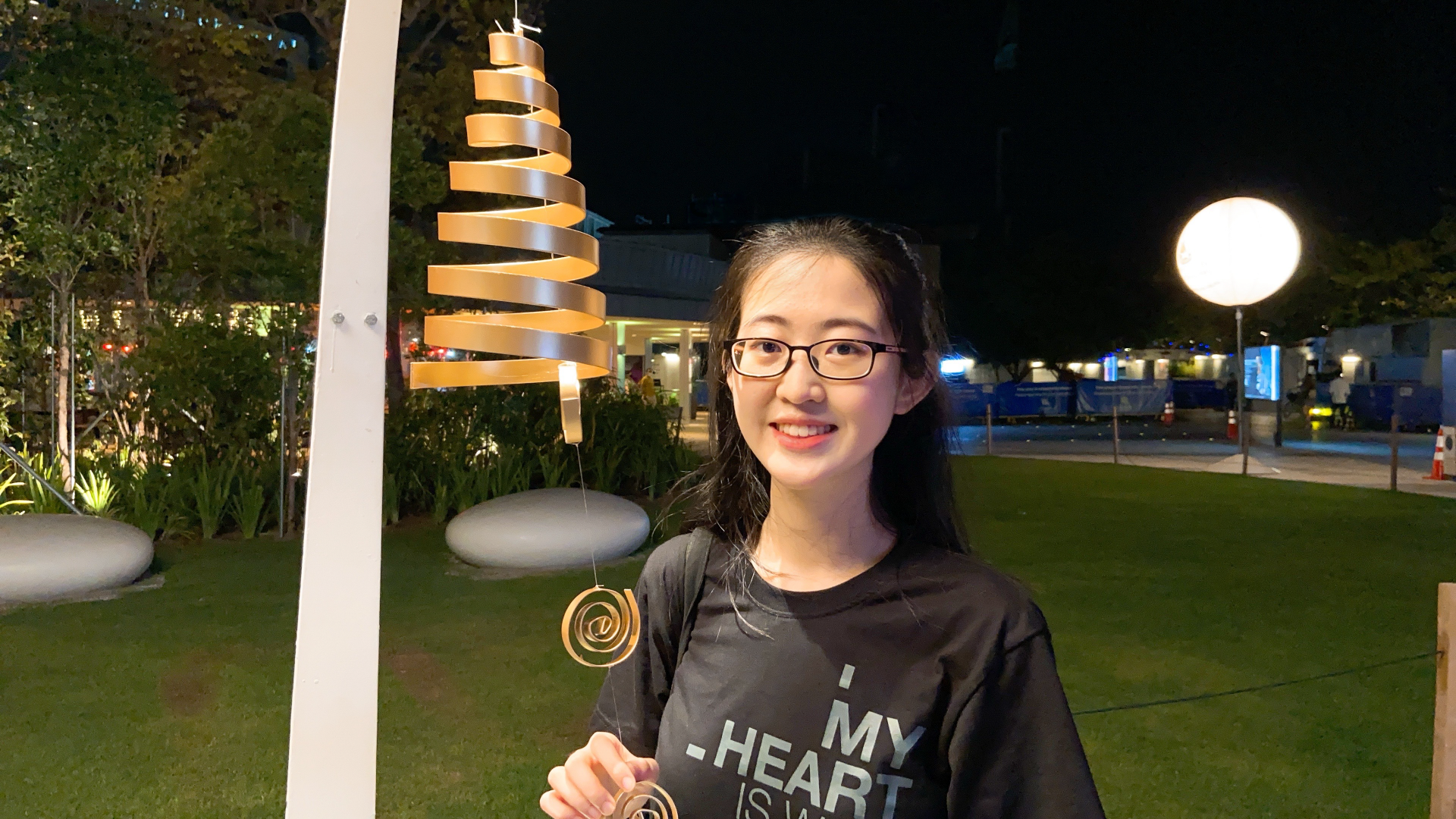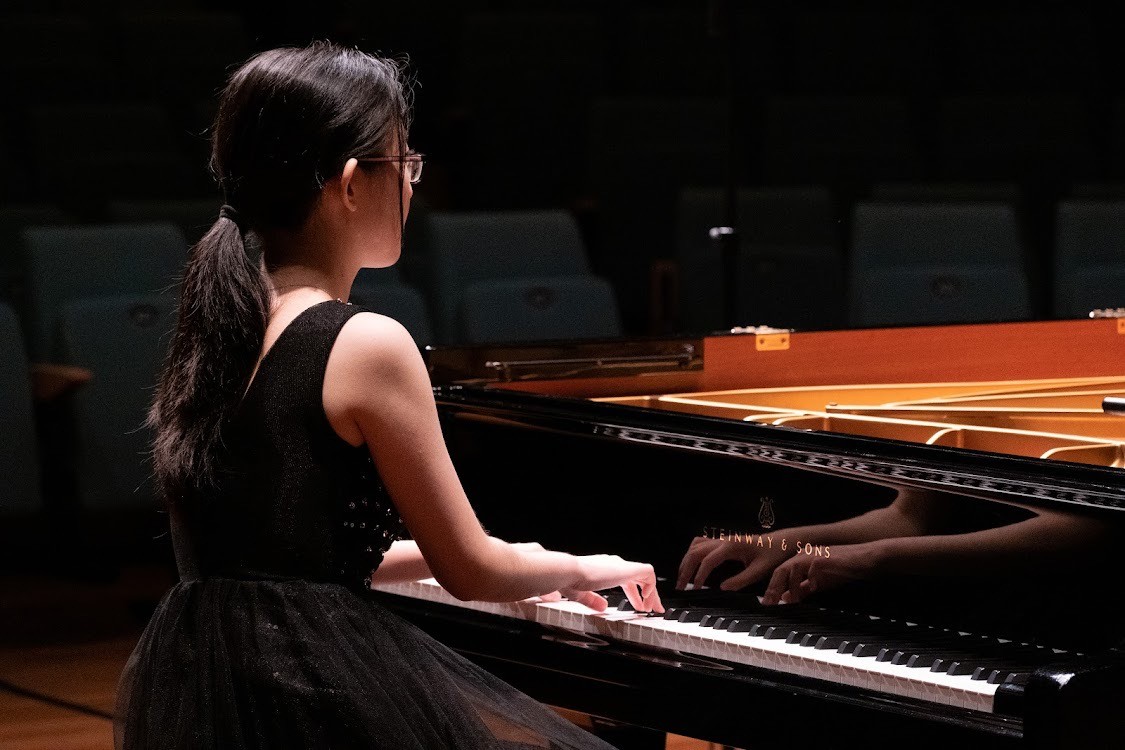Finding their calling in Computing
For Eyo Wei Chin and Wang Yuchen, studying at NUS Computing wasn’t merely a stepping stone to a career.
Coming from varied backgrounds, they eventually found their calling in the world of computing, where they could lean on their past experiences to forge new ones.
Wei Chin might have been on the Dean’s List while studying at NUS, and clinched a prestigious award while studying in a polytechnic, but he was not always this motivated.
In secondary school, Wei Chin was unmotivated to study. In fact, he just wanted to get good enough grades to graduate.
But when he was in the Secondary 4 (Normal Academic) stream, he discovered the Polytechnic Foundation Programme (PFP) which gave top N-Level graduates the opportunity to be placed directly into selected polytechnic courses after completing a preparatory year. The PFP greatly motivated Wei Chin, who successfully secured a place in it after scoring nine points in the N-Levels.
Finding his calling in cybersecurity
With a growing interest in information technology, Wei Chin decided to enrol in Temasek Polytechnic (TP) to study cyber and digital security.
His time earlier spent on computer games proved valuable, enabling him to understand complex computing concepts at TP. It was also during this time that he began to cultivate a habit of studying coding techniques outside of the classroom – a habit which continued through National Service (NS) and on to university. For his hard work at TP, he clinched the Lee Kuan Yew Award for Mathematics and Science 2017, and also won his course’s gold medal upon graduation.
While serving NS, Wei Chin felt he needed to bridge what he felt was a knowledge gap before starting at NUS, and so hired a personal tutor for a year. “I was the tutor’s oldest student,” Wei Chin laughed.
Even with the advance preparation, Wei Chin felt the heavy demands of coursework at NUS. But he remained undeterred, pushing harder on in his studies.
“In NUS, the motivation to study is higher. Everyone is trying to fight for every single mark,” Wei Chin noted. “That pressure is good as it pushes you to do your best and put in extra.”
At NUS Computing, Wei Chin also developed a strong interest in penetration testing – a security assessment where a cybersecurity expert looks for vulnerabilities in a company’s computer system and attempts to exploit them – and is embarking on a career in it.
An exciting career awaits
While waiting to begin work at the Centre for Strategic Infocomm Technologies, Wei Chin is working towards an Offensive Security Certified Professional (OSCP) certificate, a widely respected certification in the cybersecurity industry which demonstrates the holder is a skilled penetration tester.
His hard work has paid off – Wei Chin was on NUS Computing’s Dean’s List in the first semester of AY2021/2022, and will be graduating with a Bachelor of Computing with Honours (Distinction) in Information Security.
For students following his path, Wei Chin advises them to look at the big picture but yet not lose sight of their goal, lest they miss out of opportunities around them.
Wang Yuchen
For Yuchen, Computing was a calling that allowed her to combine her love for music with computer science, all while helping people at the same time – her final-year project gives patients with Parkinson’s disease a chance of leading better lives.
Yuchen has had a flair for music since young. She started learning the piano when she was three, and picked up the violin and cello later on. Her parents had initially wanted her to be a professional pianist, but relented when they realised that a career in music would require heavy investment in terms of time and money.
Beginning her journey in artificial intelligence
As a student under the NUS Computing’s Turing Programme for Bachelor of Computing (Computer Science), Yuchen was challenged to engage in research and solve technically complex problems. In her third and fourth years, she specialised in AI and social media computing.
Meanwhile, a course in Sound and Music Computing sparked Yuchen’s interest to pursue her final year project (FYP) in using AI-generated music for medical therapy in Professor Wang Ye’s Sound and Music Computing Laboratory.
Research into computer-generated music
The aim of Yuchen’s project was to build a user-preference driven music generator that uses AI to study a user’s music preferences, and which then automatically creates a new song that the user would prefer.
In the study, participants first listened to existing pieces of music and rated them from least to most liked. Songs with the lowest ranking were fed into the generator to be modified, with a new song then generated. In Yuchen’s tests, participants mostly gave higher marks to new generated songs, indicating a successful model.
For stellar work on her FYP, Yuchen was awarded the Outstanding Computing Project Prize by NUS Computing.
Giving Parkinson’s disease patients renewed hope
Music therapy has been used to help improve the quality of life for patients with Parkinson’s disease through gait rehabilitation. Patients walk around following the tempo of specially-selected music, which helps improve their motor functions.
If they simply walk without music, patients can easily get tired and impatient. But with music with a stable beat, patients can walk for longer. “The lab discovered that without music, patients will walk around for five minutes. With music, they will walk for around 30 minutes,” Yuchen said.
Using her music generator, music for the patients is tailored specifically for them, enabling them to enjoy the music even more. “Not only will they be listening to songs they personally enjoy, we expect them to walk for even longer as a result!” Yuchen shared.
This July, she will be graduating with a Bachelor of Computing (Computer Science) with Honours (Highest Distinction).
Motivated by her research, she will also further her studies at NUS Computing as a Masters student in the Sound and Computing Lab, and the team is already making improvements to the generator.
This story is part of NUS News’ coverage of Commencement 2022, which celebrates the achievements of our 13,975 graduates through 28 in-person ceremonies. For more on Commencement, read our story on the opening ceremony, check out the official Commencement website, or look up (and tag) #NUS2022 on our social media channels!






